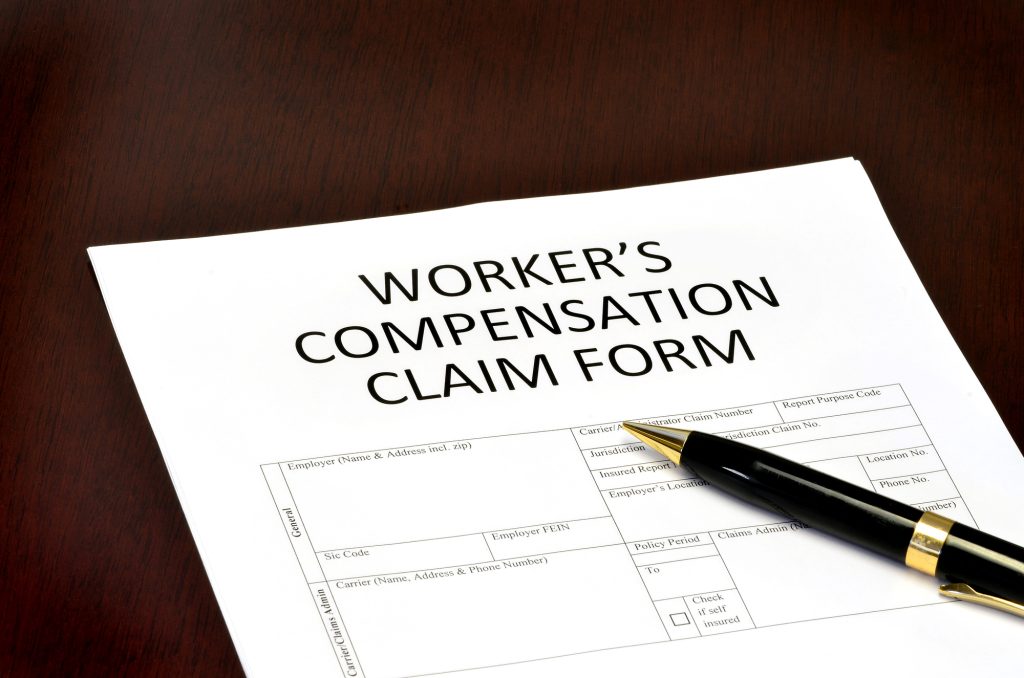Understanding who pays your health insurance while on workers’ compensation helps ensure that you don’t find yourself in financial hot water during recovery.
First, this article will try to understand workers’ compensation and health insurance coverage, it will try to see the difference between them and where they intersect. Then, the article will investigate who pays for an employee’s health insurance while they are on workers’ compensation, and also touch on the potential impact of filling for workers’ compensation.
Finally, the article will look at the FMLA leave and its impact on health insurance.
Table of Contents
- Understanding Workers’ Compensation and Health Insurance Coverage
- Who Pays Your Health Insurance on Workers’ Compensation?
- Understanding FMLA Leave and Its Impact on Health Insurance
- FAQs in Relation to Who Pays Your Health Insurance While on Workers’ Compensation
- Conclusion
Understanding Workers’ Compensation and Health Insurance Coverage
The realm of workers’ compensation can be difficult to navigate for employees who have sustained injuries during their employment. It’s essential to understand how this type of insurance interacts with your regular health insurance coverage. In the unfortunate event that an employee suffers from work-related injuries, they may find themselves transitioning from receiving regular paychecks to weekly workers’ compensation checks. This situation can naturally lead to questions about who is responsible for health insurance payments during this period. The silver lining here is that despite being on leave due to injury or illness, the employment relationship remains unchanged.
-
Save
Open lines of communication with employers throughout this process cannot be stressed enough; employers play a pivotal role in ensuring their employees comprehend how existing health insurance coverage will interact with any received workers’ comp benefits.
Your employer has valuable insights into changes regarding premium deductions or necessary adjustments owing to reduced income during leave periods. They also serve as guides steering you through required steps if there are modifications necessitated by specific parameters within your unique healthcare plan.
The Role of Workers’ Compensation Insurance Company in Disputes
In cases where there are disagreements about coverage between insurers, it is typically best practice for providers to bill the workers’ comp carrier first. If they deny payment due to reasons such as claiming that treatment was unrelated or unnecessary, you can dispute this decision through various channels, including state boards or commissions overseeing workers’ compensation claims.
If both insurances refuse payment, stating that the other party should pay instead (also known as coordination of benefits), you might need legal assistance from a lawyer specializing in these issues.
A skilled attorney will understand each policy thoroughly and argue convincingly why one party bears greater liability than another based on specific circumstances surrounding your case. They also ensure timely communication happens between parties involved which often leads towards faster resolution of disputes saving you stress while ensuring proper healthcare access continues throughout the recovery period after suffering workplace accidents causing serious harm physically, mentally, emotionally, financially, et cetera.
Also, a provider in a worker’s compensation case may categorize an employee as temporarily total disabled (TTD) due to work-related injuries. TTD affects standard paychecks and makes it harder to maintain premium payments for employer-provided health plans, which can cause financial strain. Applying for disability benefits might give extra income until the individual returns to work, assisting with financial management and premium payments.
 Source
Source
Key Takeaway:
Workers’ compensation can be challenging for employees who have sustained injuries during their employment. It’s crucial to understand how this insurance interacts with regular health insurance coverage. Employers play a pivotal role in ensuring employees understand how their health insurance coverage will interact with workers’ compensation benefits.
Who Pays Your Health Insurance on Workers’ Compensation?
Managing health insurance premiums while on workers’ compensation leave can be a complex task. The shift from regular income to workers’ comp benefits does not absolve employees of their responsibility to maintain their usual health insurance payments. This implies that as an employee navigating through such circumstances, you remain accountable for making your usual health insurance premiums even while drawing worker’s comp benefits. Just like when you were actively working, these premiums are typically deducted directly from your paycheck – in this case, though, it would be taken out of your worker’s comp check instead. The financial strain during this period could be significant, with reduced earnings and potential medical bills due to work-related injuries. However, letting your coverage lapse by missing premium payments is a risk that should ideally be avoided.
-
Save
Impact of Filing for Workers’ Compensation on Health Insurance
Filing a worker’s compensation claim might have severe implications if it leads to job loss. As in any termination scenario, the employer-provided benefits usually end once employment ceases. COBRA (Consolidated Omnibus Budget Reconciliation Act) steps into such situations as an important lifeline. This law allows former employees to retain the same level of health insurance but often at higher out-of-pocket costs since employers no longer contribute towards premiums. If you’re facing possible unemployment after filing a workers’ comp claim, understanding these options and acting promptly becomes crucial. Delayed action may result in gaps in coverage or even denial of claims by insurers if treatment is sought during periods without valid coverages.Despite being on workers’ comp, you’re still responsible for your usual health insurance premiums. They’ll likely be deducted from your worker’s comp checks instead of regular paychecks. Keep open communication with employers to understand any changes or adjustments needed during this period. #WorkersComp #HealthInsurance Click to Tweet
Understanding FMLA Leave and Its Impact on Health Insurance
The Family Medical Leave Act (FMLA) is a significant safety net for employees grappling with personal or family health issues. This federal legislation provides eligible workers with the right to take up to 12 weeks of unpaid leave annually, ensuring job security and continued health insurance coverage. In situations where an employee doesn’t qualify for FMLA protection during a worker’s comp case, it’s crucial that employers review their group health plan’s eligibility requirements. Compliance with state laws and insurer terms is key in these scenarios. Oftentimes, even if an employee can’t work due to injury but lacks FMLA protection, they may still be able to maintain their group health plans maintained by employers under certain conditions – typically contingent upon continuous premium payments. To navigate this complex terrain effectively, employees should scrutinize their Summary of Benefits and Coverage (SBC), which offers detailed information about what your plan covers and how it operates. Consult HR representatives or legal advisors who can provide specific guidance based on individual circumstances. Note that each situation will differ depending on factors such as state regulations governing workers’ compensation claims or company-specific policies regarding medical leaves.Navigating health insurance while on workers’ comp? FMLA can be a safety net, offering job security and continued coverage. But remember, eligibility varies. Consult your SBC or HR rep for guidance. #WorkersComp #HealthInsurance Click to Tweet
FAQs in Relation to Who Pays Your Health Insurance While on Workers’ Compensation
Who pays for my health insurance while on workers comp in California?
In California, you’re typically responsible for your health insurance premiums even when on workers’ compensation. However, communication with your employer is crucial to understand specific terms.Does my employer have to pay my health insurance while on workers comp in Massachusetts?
No, Massachusetts employers are not obligated to cover employees’ healthcare premiums during a worker’s compensation claim. Employees usually remain responsible for these costs.What is FMLA Leave?
FMLA provides 12 weeks of unpaid leave annually for employees with personal or family health issues, ensuring job security and health insurance coverage.Conclusion
Unraveling the mystery of who pays your health insurance while on workers’ compensation isn’t as daunting as it seems. Workers’ comp and health insurance are two separate entities, yet they intertwine when you’re out of work due to a job-related injury. Your role in maintaining your health coverage during this time is crucial. You must continue making premium payments even while receiving worker’s comp benefits. In the event of a job loss after filing for workers’ compensation, COBRA can give a temporary continuance of group health plan benefits. In circumstances such as TTD, disability benefits can augment income. The Family Medical Leave Act assures that benefits be continued under the same terms as before the leave. In case an employer refuses payment under workers comp claims, knowing how to handle medical bills becomes essential. Disputes between regular insurers and employers may arise over who should cover certain costs during open workers’ comp cases, so reach out to a skilled Attorney.Contact Fiorella Insurance today for your free health insurance quote.



